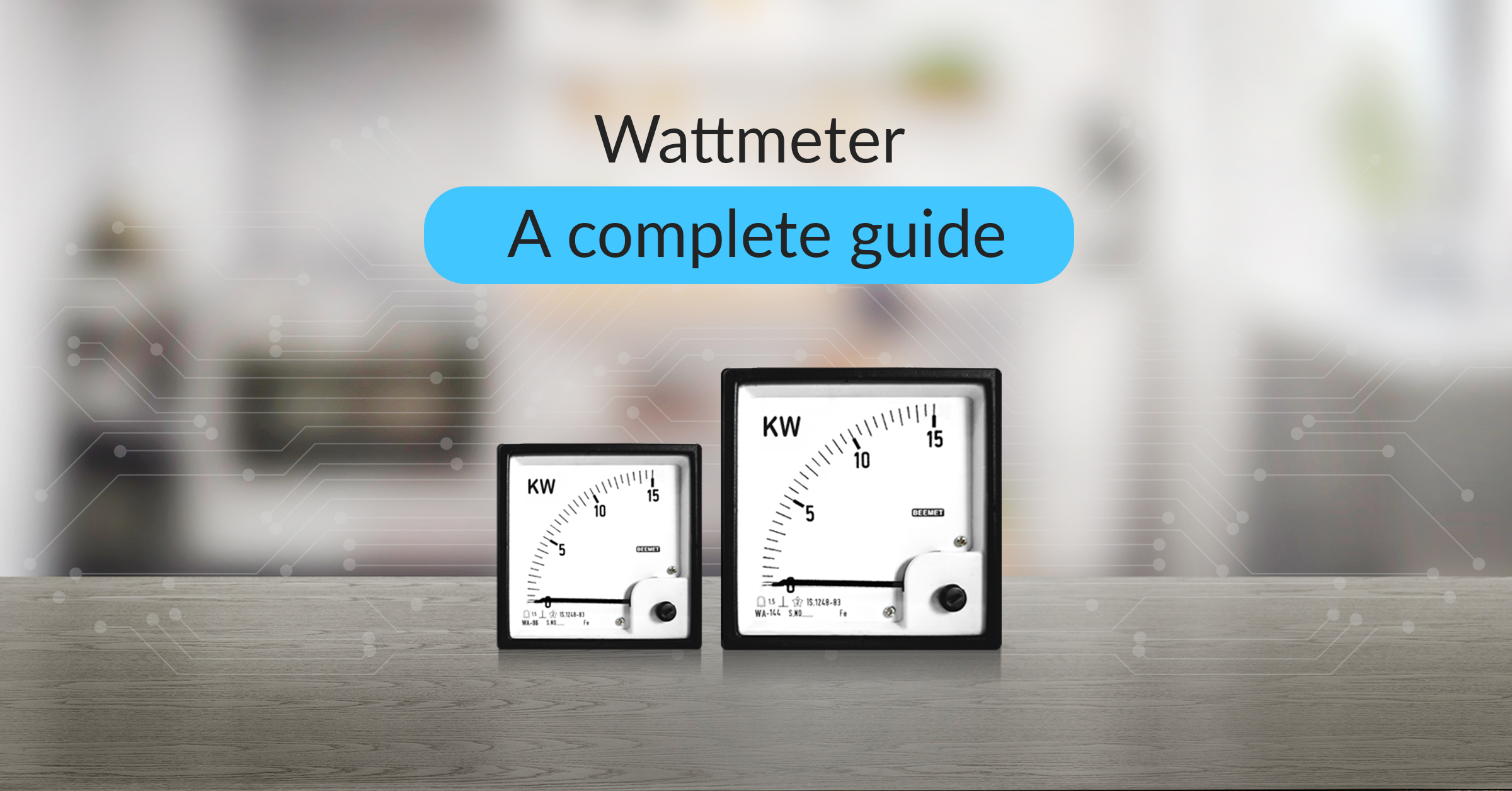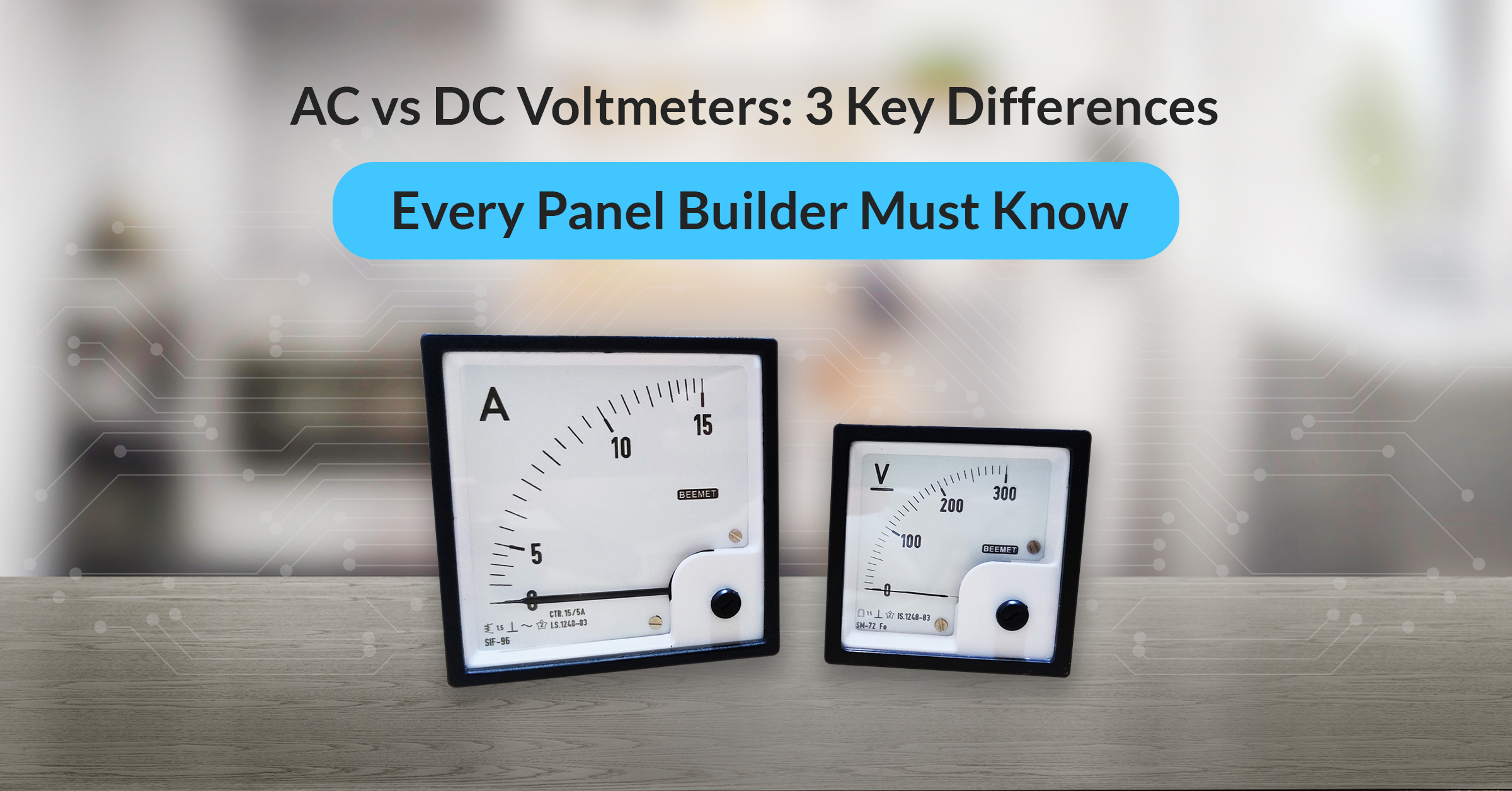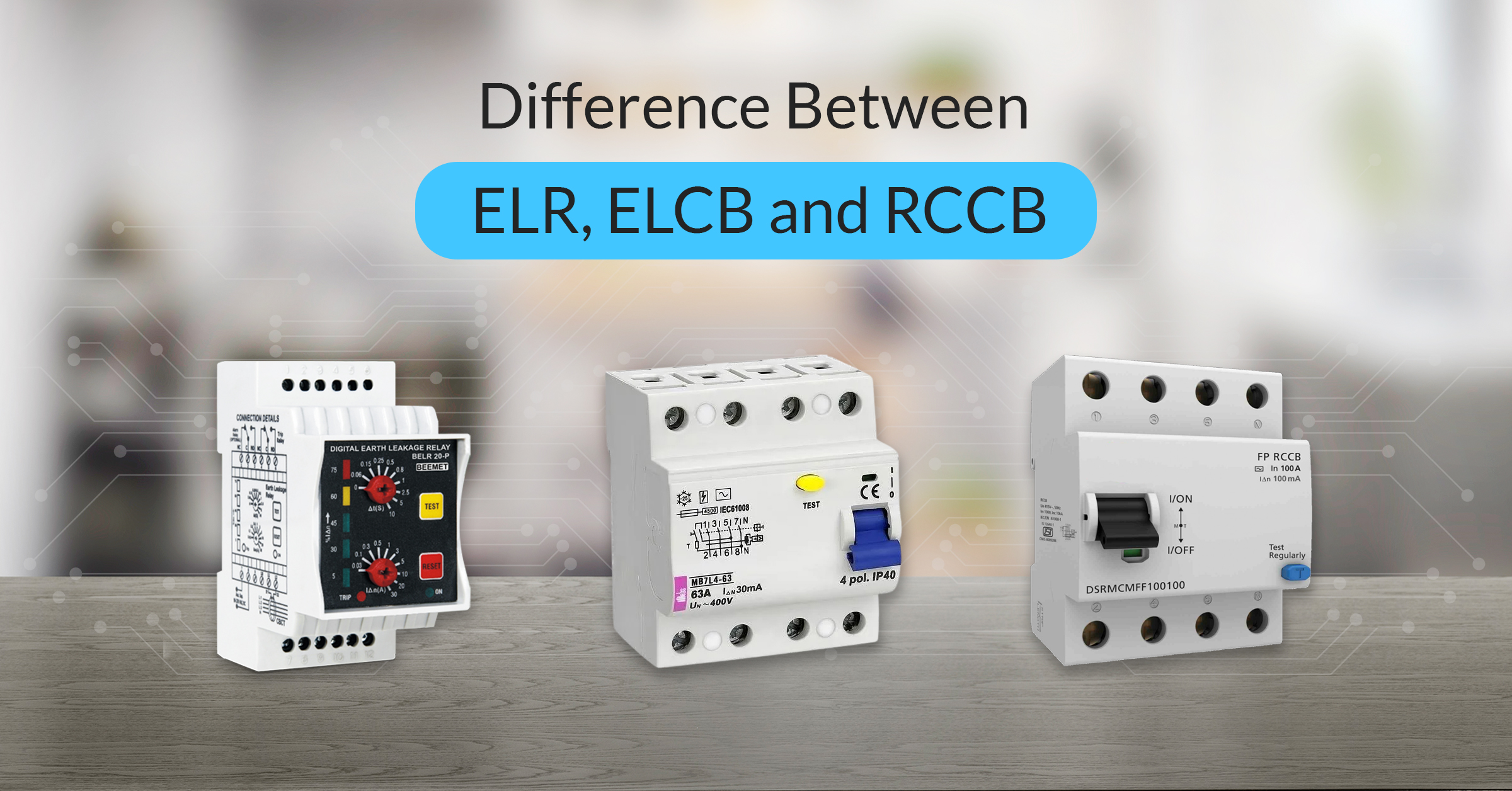In this blog, we will dive deep into the world of wattmeters, explaining their purpose, different sorts, working principle, and the numerous benefits they offer.
What is a Wattmeter?
Wattmeter is a specialised instrument designed to measure electrical power, which is the rate at which electrical energy is transferred or used.
Imagine a device that unveils the hidden secrets and techniques of your electric device and reveals precisely how much power your home equipment and gadget are consuming. That’s precisely what a watt meter does.
In simpler phrases, a wattmeter acts like a translator on your electrical device. It takes the complex language of volts and amps (voltage and current) and converts it into a clear and understandable reading of watts. By understanding your power consumption, you can take careful decisions to optimise your electrical usage and save money.
Different Types of Wattmeters
There are two types of wattmeter that caters to unique requirements such as :
Analog Wattmeters:
These energy meters utilise dials and needles to display readings. They offer a reliable and simple technique for measuring basic power consumption. Think of them as the traditional instruments that get the jon done for applications that do not require fancy features.
Digital Wattmeters:
These energy meters leverage the energy of digital generation to deliver highly accurate and detailed measurements. Imagine a high-tech assistant on your electrical system. Digital wattmeters often come geared up with advanced capabilities like:
- Large LCD Displays: They present readings in clear and smooth-to-examine digital formats. They eliminate the need for interpretation of dial positions.
- Data Logging: These meters can record and store historic records on power consumption which permit you to identify patterns of your power usage. This historical data becomes precious for evaluation and optimization techniques.
- Multiple Measurement Functions: Many virtual wattmeters can measure various electrical parameters beyond watts, which includes voltage, current, power factor, or even energy intake over time. This complete evaluation empowers you to benefit from a deeper understanding of your electric system’s health.
Wattmeter Working Principle: How It Works
The use of wattmeter is based on its ability to determine both voltage and current simultaneously. But it’s what it does with these measurements that in reality units it aside. By performing calculations based totally on those readings, wattmeters unlock the secrets and techniques of your electrical power consumption:
- Wattmeter Terminals: A wattmeter generally has four terminals – for voltage dimension (voltage terminals) and two for current measurement (current terminals).
- Internal Operation: The voltage terminals are linked across the load (appliance or system) whose power consumption you need to degree. The current terminals are related in series with the load. This allows the present day to flow through the wattmeter itself. Internally, the wattmeter uses these measurements to calculate the power based totally on the principle of electromagnetism.
Advantages of Using Wattmeters
Wattmeters offer a wide range of benefits that may drastically impact your bottom line and your basic electrical device health such as:
- Cost Savings: By identifying the energy guzzlers in your electrical system, wattmeters empower you to do so. You can pinpoint appliances or device with immoderate strength intake and put in force targeted measures to lessen your electricity bills. Think of it as a financial detective which helps you discover hidden energy prices and save money.
- Improved Efficiency: These meters help you perceive areas for optimization which allows you to fine-tune your system and make sure your equipment features at its maximum efficiency. This can enhance system performance and potentially reduce maintenance charges.
- Informed Decision-Making: Having a clear picture of your energy intake allows you to make knowledgeable choices concerning your electrical machine. For instance, you may determine if upgrading to more power-green appliances is a worthwhile investment based on the capacity fee savings.
Applications of Wattmeters:
The benefits of wattmeters amplify across a huge range of industries and applications. Here are some top examples:
- Household Use: For homeowners interested in lowering their electricity bills, wattmeters can be used to detect the maximum power consuming appliances. This information empowers them to make knowledgeable decisions about appliance usage and doubtlessly upgrade to more energy-efficient models.
- Industrial Applications: In manufacturing plants and commercial facilities, wattmeters play a crucial function in optimizing production procedures. By tracking the power intake of equipment, engineers can pick out areas for development and put into effect measures to lessen power waste. This can result in tremendous financial savings and make contributions to a greater sustainable manufacturing process.
- Power Generation and Distribution: Power plants and distribution agencies rely on wattmeters to ensure efficient energy technology and distribution. These units help monitor crucial parameters like voltage, current, and energy consumption, taking into account changes to optimise the power flow and reduce energy losses.
- Building Management: Wattmeters can monitor and display power consumption in industrial and residential buildings. This information can be used to become aware of areas for development, such as inefficient lighting fixtures systems or previous HVAC devices. By enforcing electricity-saving measures based totally on the data provided by wattmeters, building owner can substantially lessen their power payments and contribute to a greener destiny.
- Renewable Energy Integration: The growing adoption of renewable energy sources like solar and wind power brings new challenges. Wattmeters can be used to evaluate the overall performance of solar panels, wind generators, and different renewable energy systems. By monitoring energy production and figuring out inefficiencies, wattmeters can help make certain those systems perform at maximum efficiency.
Get Wattmeters with BEEMET
BEEMET is a leading manufacturer and provides a comprehensive range of these essential electrical instruments. We offer a complete range of extremely efficient wattmeters to suit your specific requirements.
Our user-friendly wattmeters are designed to provide you with precise measurements, with alternatives for both traditional analog and advanced digital models. This empowers you to make informed decisions concerning your electrical device and optimise your electricity usage.
Frequently Asked Questions:
Q: What’s the difference between a watt and a watt-hour?
A watt (W) is the unit of power, representing the charge at which electrical strength is transferred or used. A watt-hour (Wh) is the unit of electricity consumption, indicating the entire quantity of strength used over the years.
Q: How does a wattmeter work?
A wattmeter checks how much power a device uses by measuring voltage and current. It then multiplies the voltage and current to find the power in watts using its internal parts.
Q: Which symbol is used to represent a wattmeter in circuit diagrams?
There’s no universally accepted symbol for a wattmeter in circuit diagrams. However, some common representations include a capital “W” enclosed in a circle or a mixture of symbols for voltage and modern assets with a further element to indicate the power measurement function.
Q: Do I need an analog or digital wattmeter?
If you require a cost effective basic power consumption reading, an analog wattmeter might be the perfect choice for you. For more accurate data, and data logging abilities, a digital wattmeter can be your preference.
Q: How can I ensure accurate readings from my wattmeter?
It’s important to use a wattmeter with the best voltage and current ratings for the circuit you are measuring. Additionally, ensure right connections and keep away from overloading the wattmeter to save you damage. Consulting the user manual on your particular wattmeter model is recommended for maximum efficiency.



